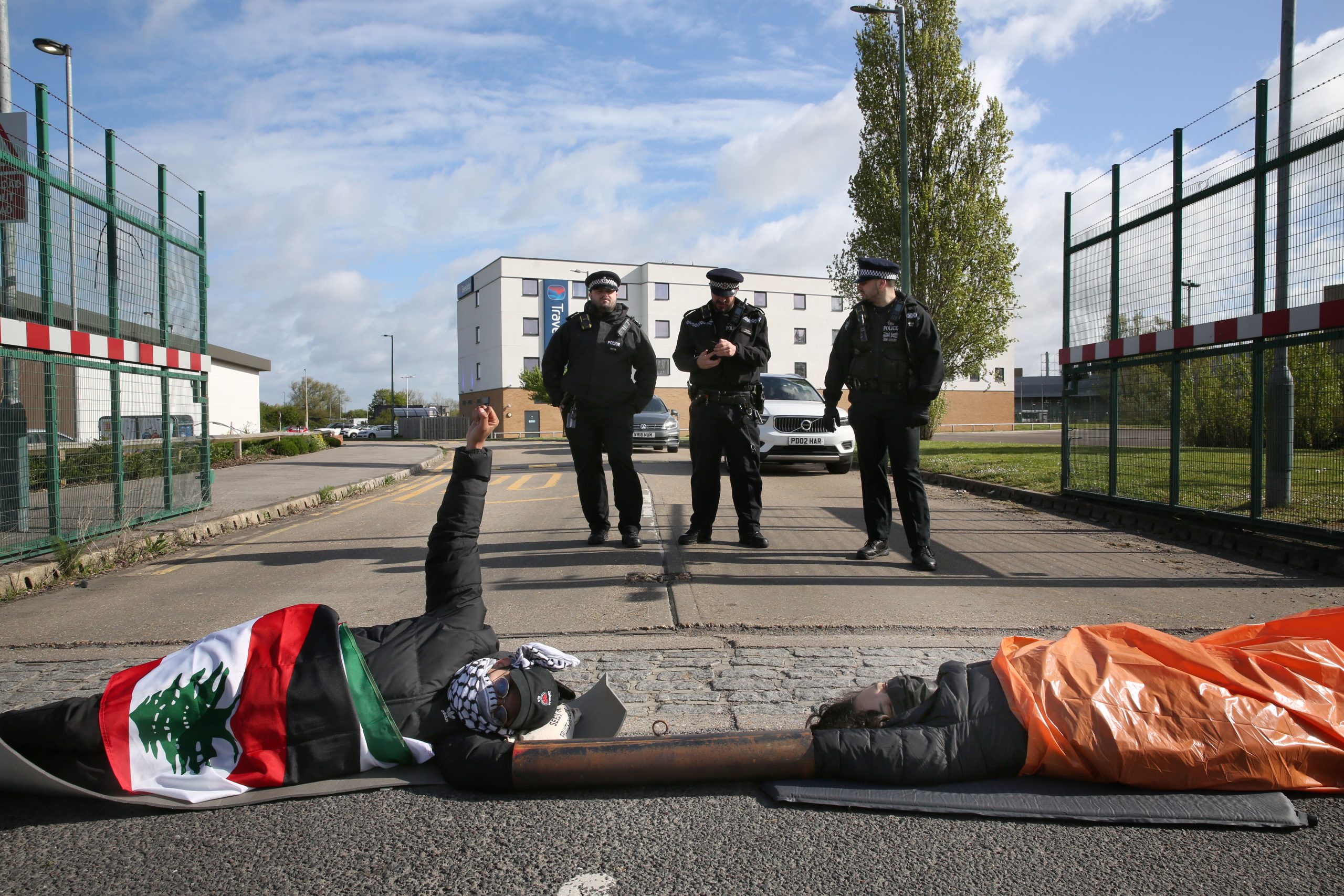This week has seen a raft of draconian law & order policies floated by the government and police representatives. Carl Spender examines these grim omens of the future.
And so it begins: returned to government with a thumping majority, Johnson’s Tories have begun a crackdown on those pesky legal rights that risk getting in the way of their plans to transform the UK into “Singapore-on-Thames”. A preview of coming attractions was already offered to us last year, in the form of the government consultation on new laws to target GRT communities. But, in a series of speeches and anouncements this week, government ministers – and the police – laid out a much more comprehensive vision of the law-and-order society they want to create.
Sentencing
“Toughen up sentences” has been Tory policy more or less since the party was founded in 1834, but in the wake of the recent knife attacks in Streatham and London Bridge, there has been a renewed drive for the state to lock up more people for longer. On Monday, the Lord Chancellor and Secretary of State for Justice, Robert Buckland, told the House of Commons that the government would seek to pass emergency legislation that will ensure those convicted of ‘serious terrorist offences’ serve two-thirds of their sentence rather than half, and only be eligible for release then if the Parole Board deems them safe. Such a move would potentially bring the UK into conflict with Article 7 of the European Convention on Human Rights (ECHR) but legal experts are far from unified in this view.
The ECHR – which is entirely separate from the EU – has long been a target of Tory ire, with the party’s 2019 manifesto promising an ‘update’ of the Human Rights Act, which enshrines the provisions of the ECHR in domestic law. On Tuesday, a government spokesman did not rule out a temporary derogation from the convention in order to put the new laws in place and said the legislation could be introduced in the next few days. Whether it will affect only those convicted of terrorism offences or, in line with Johnson’s election pledge, a wide range of serious criminal acts remains to be seen. Irrespective, Buckland’s speech to the House undoubtedly heralds the beginning of the long-brewing Tory war on civil rights.
Police bail
It’s not only those convicted of crimes that will be facing a tougher regime of regulation. Yesterday, Britain’s poundshop Duterte, Priti Patel, announced that the Home Office was consulting on a set of proposals to strengthen pre-charge or police bail, which allows the cops to impose conditions on individuals who are being investigated – but have not yet been charged – with an offence. Patel’s proposals include:
- Removing the presumption against pre-charge bail;
- Placing a duty on officers to use pre-charge bail in cases where it is necessary and proportionate, including for cases where there are risks to victims, witnesses and the public; where it could prevent reoffending and where the offence in question has significant real or intended impacts;
- Allowing officers of a lower rank to authorise and extend pre-charge bail;
- Extending the initial period where pre-charge bail can be applied from 28 to either 60 or 90 days, as well as delaying the point at which magistrates’ approval for the extension of bail is required from 3 months to 6, 9 or 12 months; and
- Introducing ‘review points’ in codes of practice for investigations where pre-charge bail is not used, including where individuals are interviewed voluntarily or released under investigation.
These proposals would thus reverse changes brought in by the Policing and Crime Act 2017, following outcry at the length of time spent on bail by (later exonerated) suspects in Operation Yewtree. In effect, the proposed changes would allow officers to impose stringent conditions on the lives of people they suspect of committing an offence, lasting for months at a time, without any scrutiny by a court. As many activists know, the conditions imposed by the police are often deeply restrictive and wildly disproportionate, with instances of cops banning protestors from entering entire counties.
While Patel’s proposals are likely to be welcomed by charities such as Women’s Aid, the real winners are the Police Federation who have stolidly opposed the 28 day limit since it was first proposed by then Home Secretary, Theresa May (oh, those halcyon days…). In an article published today on Politics Home, the Chair of the Police Federation, Jon Apter, claims that 28 days is simply not enough time for dilligent cops to investigate criminal allegations and that as a result, dangerous criminals are being left to wander the streets unmonitored. That Apter is seeking to capitalise on the public’s anxieties post-Streatham is outrageous, if utterly predictable. However, for him to characterise Patel’s proposals – which, on any analysis, involve swingeing infringements of indivdual liberty – as little more than a ‘snipping’ of red tape is utterly terrifying (if, once again, totally unsurprising).
Protest Policing
Apter isn’t the only ‘wise old copper’ who has sensed an opportunity this week. Metropolitan Police Commissioner Cressida Dick (aka “Hollow Point”) has also redoubled her calls for greater legal powers to deal with protest groups like Extinction Rebellion. Speaking to the London Assembley yesterday, Dick called for a range of changes to public order policing powers, specifically:
- Public nuisance to be made a statutory – rather than a common law – offence. (1)
- A lowering of the threshold before which conditions can be imposed on protests or assemblies under s12 and 14 of the Public Order Act 1986. (2)
The explicit aim of these changes was, Dick claimed, to help them “deal with protests where people are not primarily violent or seriously disorderly but, as in this instance, had an avowed intent to bring policing to its knees and the city to a halt and were prepared to use the methods we all know they did to do that.”
She couldn’t be much clearer: the police are out to stop anything but the most sedate, non-disruptive expressions of dissent. Obviously, we on the extra-parliamentary left were already painfully aware that this was the cops’ modus operandi but for the head of the Met to express this position so openly and brazenly is a worrying sign of the times. It speaks to a general resurgence of confidence on the part of the cops. After years of (perceived) hectoring by Theresa May, the police evidently feel that they again have the government’s unwavering support. Whether it’s Dick’s declaration of war against Extinction Rebellion in the pages of the Evening Standard or frontline coppers threatening to arrest entire picket lines, there’s a growing sense that the rules are changing, and not in our favour. It’s up to us to respond.
Carl Spender
(1) Public nuisance will be the subject of a forthcoming article, in which I’ll examine the reasons why the cops would like PN to become a statutory offence.
(2) s12 and 14 of the Public Order Act currently say that conditions can be imposed on a public assembly or procession if and only if “it may result in serious public disorder, serious damage to property or serious disruption to the life of the community”. The cops want the requirement that the disorder, damage or disruption be ‘serious’ to be removed or downgraded.








